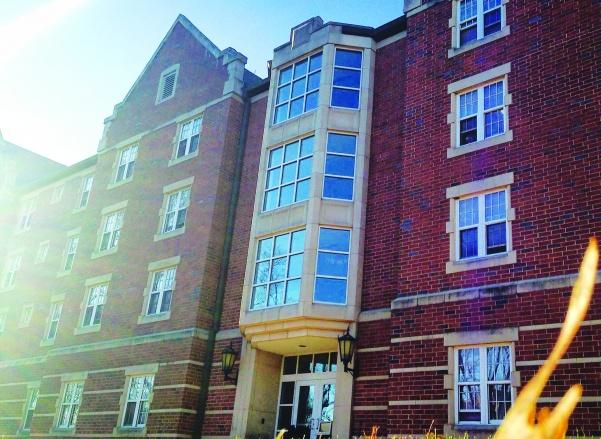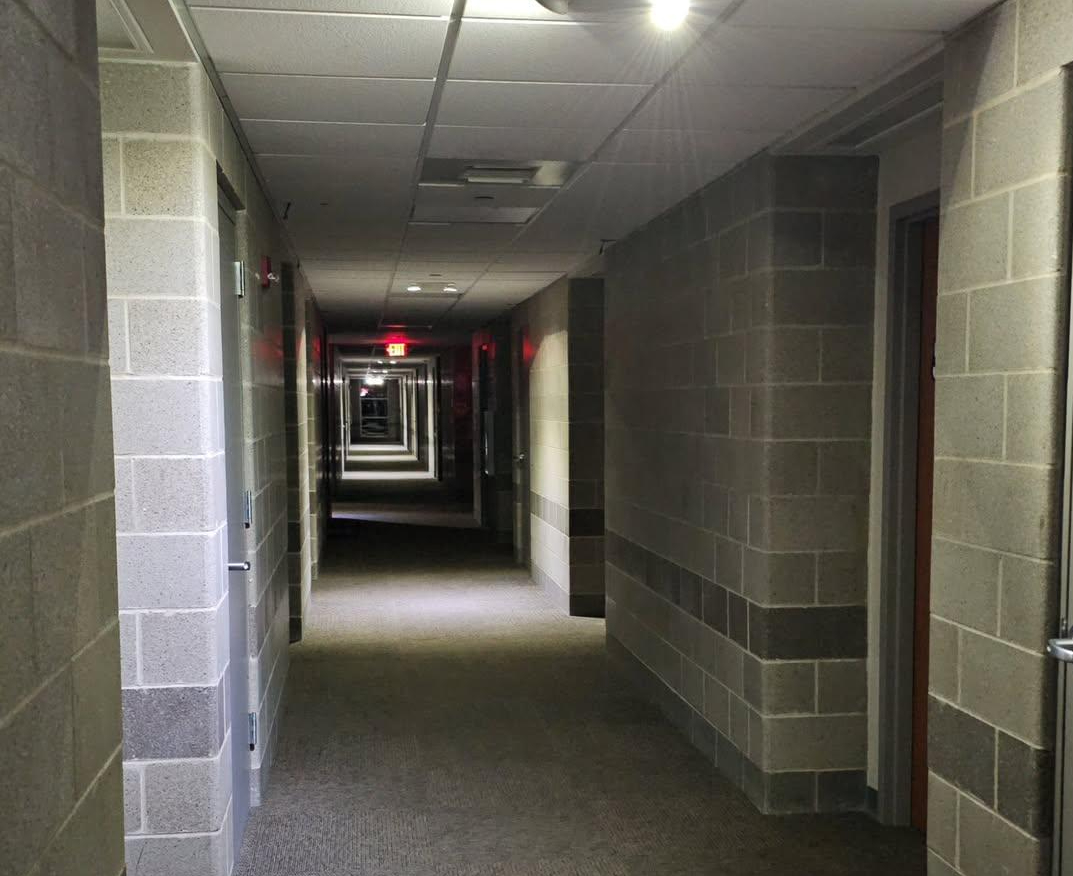MADELINE RAINERI | News Editor
Next semester, Lindenwood will have two coed dorms, according to President Michael Shonrock, although the specific dorms have not been determined yet.
Terry Russell, director of Residential Life, said administrators had considered the move for a while, which would put male and female students on alternate floors in the same dormitories. His staff had toured several colleges to conduct research on the option, he said.
The change has been considered for several reasons, including the fact that 24-hour visitation on the weekends, a policy that began last fall, has caused no serious issues, he said.
Russell said the idea for the pilot program began two years ago when President Michael Shonrock approved visitation from noon to midnight in non-traditional housing like Linden Terrace and Powell Terrace, which previously had no privileges for opposite-sex visitors.
Jesus Lopez, the assistant director of Residential Life at Lindenwood, said open communication between roommates has kept the new rules running smoothly. As an added precaution, his staff does a check on Sundays to make sure that everyone has exited the dorm buildings.
Many potential problems have been avoided, Lopez said, because “the roommate agreement allows students to set their boundaries.”
In addition, area coordinators are on call 24 hours a day in every housing area, whether it be traditional or non-traditional, to address the safety concerns students may have. Phone lines also were added to every front desk in the residential halls to offer assistance to the students, especially on the weekends.
Russell said easing the housing policy to allow for coed living would not only answer students’ requests for more freedom, it would allow the university more flexibility to house a higher than normal number of students of a particular sex.
Instead of telling those overflow students they have to commute to campus, they could be housed with the opposite sex, which may have lower numbers and available rooms in a dorm.
“Logistically it makes more sense, economically it makes more sense and even socially it makes more sense,” he said. “Students like to co-mingle.”
Currently, the university has seven male residential halls and eight female residential halls, with Niccolls Hall remaining unopened for repairs and upgrades, Russell said.
In non-traditional housing, like Powell Terrace and Linden Terrace, 409 spots are allotted for female residents and 369 for males. The Powell Terrace residential area is currently all male, whereas the Linden Terrace area is considered “coed” because of the male housing on both Duchesne and Droste roads.
Russell said that coed housing also would allow the students to develop a better sense of respect for each other.
“Because they know the opposite sex is in the building, it will make them more mindful and respectful,” he said.
For students like freshman Mia Tebbe and sophomore Lauren Dickherber, residents in the women’s dormitories, a more liberal housing policy would be welcome.
“I think the visitation program is foolish; we are college students, and part of college is being on your own and gaining independence,” said Tebbe, a resident of Irwin Hall.
Dickherber, a resident in Blanton Hall, said, “I feel like it’s better than the old policy but still silly since we’re in college. Visitation is dumb.”
No decision has been made either regarding the future of the 24-hour visitation policy. Russell said the decision to make the pilot program a permanent fixture on campus will be made after the spring semester when the program can be fully reviewed.
Russell said when coed housing is approved, all-male and all-female housing options would still be available. It is unclear when a decision would be made on the policy.
The coed housing will put Lindenwood in line with other local universities like Washington University, Saint Louis University and Webster University, who offer housing options that allow males and females to live in proximity with each other, whether it be in specific dormitories or on specific floors.
If the mixed living arrangement is approved, it would be the first time for coed housing at Lindenwood since the university began allowing males to attend in 1969. The first 15 males to attend Lindenwood University inhabited Ayres Hall, completely separate from any women’s living quarters.









